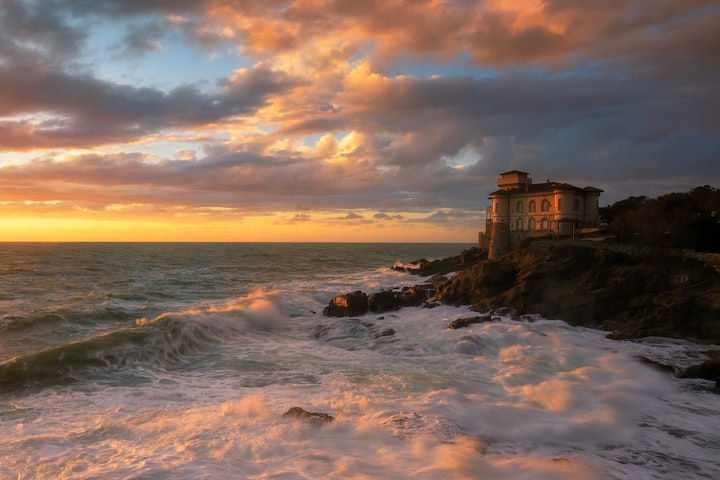Giuseppe Benassi, "Omicidio a Calafuria e altri putiferi"
Review of a crime story

He deliberately risks the intolerance of the reader, Giuseppe Benassi, in this “Murder in Calafuria and other rucksus”, a destructured crime story, without investigations and without logical deductions, set in a Livorno where only streets and monuments are real, populated by an undergrowth of erotomaniac characters who practice orgies and couple swapping.
The murder of Filippo Bondelli — scion of a noble family with a villa in Antignano, found dead, naked and anointed with oil, on the rocks below the Calafuria tower — is investigated by the lawyer Borrani, an unpleasant, cynical, irreverent character with a vulgar and Dionysian sexuality. Borrani throws live fish into a frying pan for the sake of observing them as they dart and writhe, he feels satisfaction at the sight of a cat squashed on the asphalt, he is profoundly misogynistic, he does not love his profession or his fellow lawyers, he does not love humanity and his neighbor, he does and says things that annoy us because we know they are true.
“It can be seen that we are just twigs in the wind, nothing is enough and we become different, for example I still haven’t figured out if I’m a serious man or a buffoon if I’m intelligent or a jerk”.
Around the murder moves a crowd of characters that seem to come from the Turin of “At what point is the night” by Fruttero and Lucentini or from the pen of a hyper-realist Dickens. Characters whose stream of consciousness we follow in long chapters that do not develop the plot but twist it around itself without an outlet, in an involuntary way. The sorceress Gilda hovers over the whole story without ever realizing her weight in the plot, an elderly transvestite who reads the tarot cards to the ladies with whom he once copulated. Silvana Oldini, the dead man’s chaste fiancée, seems to belong to a poem by her beloved Gozzano, a sort of Signorina Felicita from other times, the incarnation of the pure feminine to which all libertines basically tend, an unattainable, angelic, stylnovist woman. Only her, her passionate letters, are entrusted with the only lyrical moments of the whole story. Mafalda, the mother of the young lawyer trainee, lives lost in her esoteric beliefs ranging from angels to the New Age. Artemisio Cocci, blasphemous and irreverent sculptor, is about to participate in the Venice Biennale. Marcello, the unpaid trainee, is desperately looking for a girlfriend. There is, more generally, a crowd made up of lawyers, praetors, judges, journalists, a grinning, dreamlike, obscene multitude as in a surreal painting.
And to look for who killed Bondelli, he reflects on the relic of the holy prepuce, on the possible cloning of Jesus, on the vital energy of the Kundalini, on astrology, on music and on painting.
The chapters have different styles, as if Benassi was still looking for his one, experimenting with more than one, also to show us his versatility. From the lyricism of Silvana’s letters, we move on to the ironic mimesis of the language of criticism and journalism. Great space is given to dense and exhausting dialogues, full of puns, almost Wildian aphorisms, “getting married means taking a person and making them the worst of our habits”, of repartee from the theater of the absurd, of scatological vulgarity and ironic cultured quotations, between third person narration and stream of consciousness, between historical present and past, in an attempt at redemption from a perennial, frustrating alienation from the rest of the world. Borrani is described by hearsay, “some say that”, but also, and above all, through his incessant interior monologue.
“And spending hours fishing doesn’t mean for the lawyer trying to catch fish, it means spending hours seeing in the float a part of himself that wanders through the air, the water of the river, the water of the sea. It means going dazed in the afternoon sun, forgetting about oneself and the world and reaching an animal state, a vegetable consistency, a mineral nature”.
About the Creator
Patrizia Poli
Patrizia Poli was born in Livorno in 1961. Writer of fiction and blogger, she published seven novels.






Comments
There are no comments for this story
Be the first to respond and start the conversation.